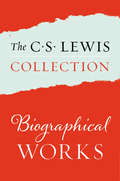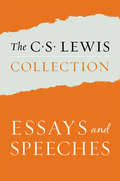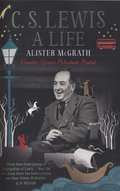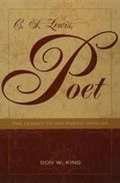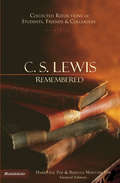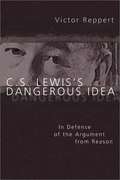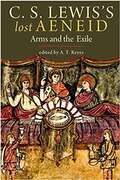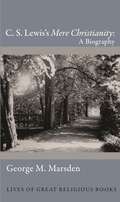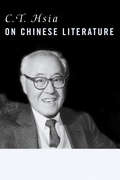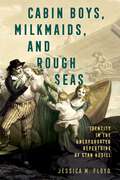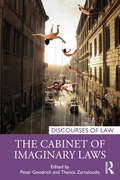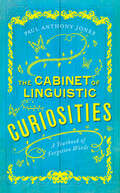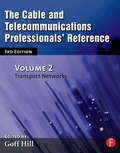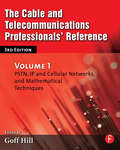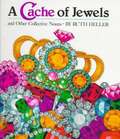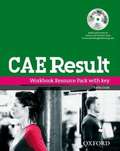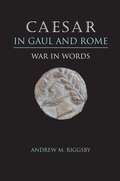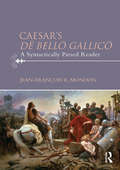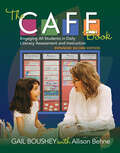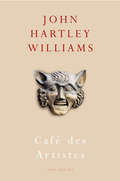- Table View
- List View
The C. S. Lewis Collection: Biographical Works
by C. S. LewisWith his trademark warmth and wit, Lewis shares his biographical and personal faith journey with readers. Includes:• Surprised by Joy• A Grief Observed• All My Road Before Me• Letters to an American Lady• Letters of C. S. Lewis• The Collected Letters of C. S. Lewis, Volume I• The Collected Letters of C. S. Lewis, Volume II• The Collected Letters of C. S. Lewis, Volume III
The C. S. Lewis Collection: The Weight of Glory; God in the Dock; Christian Reflections; On Stories; Present Concerns; and The World's Last Night
by C. S. LewisWith his trademark warmth and wit, Lewis demonstrates his wide range of interests in this collection of writings—a must-read for fans of Lewis’s creative works.Includes:• The Weight of Glory• God in the Dock• Christian Reflections• On Stories• Present Concerns• The World’s Last Night
C. S. Lewis - A Life: Eccentric Genius, Reluctant Prophet
by Alister McgrathThe recent Narnia films have inspired a resurgence of interest in C. S. Lewis, the Oxford academic, popular theologian and, most famously, creator of the magical world of Narnia - and this authoritative new biography, published to mark the 50th anniversary of Lewis's death, sets out to introduce him to a new generation. Completely up to date with scholarly studies of Lewis, it also focuses on how Lewis came to write the Narnia books, and why they have proved so consistently engaging. Accessible and engaging, this new biography will appeal to fans of the films, readers of Lewis and of theologian and apologist Alister McGrath himself.
C.S. Lewis on Politics and the Natural Law
by Micah J. Watson Justin Buckley DyerConventional wisdom holds that C. S. Lewis was uninterested in politics and public affairs. The conventional wisdom is wrong. As Justin Buckley Dyer and Micah J. Watson show in this groundbreaking work, Lewis was deeply interested in the fundamental truths and falsehoods about human nature and how these conceptions manifest themselves in the contested and turbulent public square. Ranging from the depths of Lewis' philosophical treatments of epistemology and moral pedagogy to practical considerations of morals legislation and responsible citizenship, this book explores the contours of Lewis' multi-faceted Christian engagement with political philosophy generally and the natural-law tradition in particular. Drawing from the full range of Lewis' corpus and situating his thought in relationship to both ancient and modern seminal thinkers, C. S. Lewis on Politics and the Natural Law offers an unprecedented look at politics and political thought from the perspective of one of the twentieth century's most influential writers.
C. S. Lewis, Poet: The Legacy of His Poetic Impulse
by Don W. KingThe Legacy of His Poetic Impulse Don W. King contends that Lewis's poetic aspirations enhanced his prose and helped make him the master stylist so revered by the literary world. With its careful examination of early diaries and letters, and the inclusion of four of Lewis's previously unpublished narrative poems and eleven of his previously unpublished short poems.
C. S. Lewis Remembered
by Harry Lee Poe Rebecca Whitten PoeSeventeen students, friends and colleagues of C. S. Lewis offer their personal memories of Lewis as a teacher, scholar, writer and Christian apologist. The volume includes pieces by Lewis' godson, Lawrence Harwood, a transcript of an interview with Owen Barfield, who played an important role in Lewis' shift from atheism to Christianity, and a previously unpublished sketch of Lewis by Mary Shelley Neylan. The appendix includes an article from a science fiction fan magazine that transcribes a conversation between Lewis, Kingsley Amis and Brian Aldiss. Annotation ©2007 Book News, Inc. , Portland, OR (booknews. com)
C. S. Lewis's Dangerous Idea: In Defense of the Argument from Reason
by Victor ReppertDarwinists attempt to use science to show that our world and its inhabitants can be fully explained as the product of a mindless, purposeless system of physics and chemistry. Lewis claimed in his argument from reason that if such materialism or naturalism were true, then scientific reasoning itself could not be trusted. Claiming that Lewis's arguments have often been too easily dismissed, Reppert revisits the debate between Lewis and the philosopher Elizabeth Anscombe and demonstrates that the basic thrust of the argument from reason can bear up under the weight of the most serious philosophical attacks. Charging dismissive critics, Christian and not, with ad hominem arguments, Reppert's own rigerous reformulation shows that the greatness of Lewis's mind is best measured not by his ability to do our thinking for us but by his capacity to provide sound direction for taking our own thought further up and further in.
C. S. Lewis's Lost Aeneid: Arms and the Exile
by A. T. Reyes C. S. LewisC. S. Lewis (1898–1963) is best remembered as a literary critic, essayist, theologian, and novelist, and his famed tales The Chronicles of Narnia and The Screwtape Letters have been read by millions. Now, A. T. Reyes reveals a different side of this diverse man of letters: translator. <p><p> Reyes introduces the surviving fragments of Lewis's translation of Virgil's epic poem, which were rescued from a bonfire. They are presented in parallel with the Latin text, and are accompanied by synopses of missing sections, and an informative glossary, making them accessible to the general reader. Writes Lewis in A Preface to Paradise Lost, “Virgil uses something more subtle than mere length of time…. It is this which gives the reader of the Aeneid the sense of having lived through so much. No man who has read it with full perception remains an adolescent.” Lewis's admiration for the Aeneid, written in the 1st century BC and unfolding the adventures of Aeneas, a Trojan who traveled to Italy and became the ancestor of the Romans, is evident in his remarkably lyrical translation. <p><p> C. S. Lewis's Lost Aeneid is part detective story, as Reyes recounts the dramatic rescue of the fragments and his efforts to collect and organize them, and part illuminating look at a lesser-known and intriguing aspect of Lewis's work.
C. S. Lewis's Mere Christianity: A Biography (Lives of Great Religious Books #24)
by George M. MarsdenMere Christianity, C. S. Lewis's eloquent and winsome defense of the Christian faith, originated as a series of BBC radio talks broadcast during the dark days of World War Two. Here is the story of the extraordinary life and afterlife of this influential and much-beloved book. George Marsden describes how Lewis gradually went from being an atheist to a committed Anglican—famously converting to Christianity in 1931 after conversing into the night with his friends J. R. R. Tolkien and Hugh Dyson—and how Lewis delivered his wartime talks to a traumatized British nation in the midst of an all-out war for survival. Marsden recounts how versions of those talks were collected together in 1952 under the title Mere Christianity, and how the book went on to become one of the most widely read presentations of essential Christianity ever published, particularly among American evangelicals. He examines its role in the conversion experiences of such figures as Charles Colson, who read the book while facing arrest for his role in the Watergate scandal. Marsden explores its relationship with Lewis's Narnia books and other writings, and explains why Lewis's plainspoken case for Christianity continues to have its critics and ardent admirers to this day. With uncommon clarity and grace, Marsden provides invaluable new insights into this modern spiritual classic.
C. T. Hsia on Chinese Literature
by Hsia C. T.Best known for the groundbreaking works A History of Modern Chinese Fiction (1961) and The Classic Chinese Novel (1968), C. T. Hsia has gathered sixteen essays and studies written during his Columbia years as a professor of Chinese literature. Wider in range and scope, C. T. Hsia on Chinese Literature stands beside his two earlier books as part of his critical legacy to all readers seriously interested in the subject.
Cabin Boys, Milkmaids, and Rough Seas: Identity in the Unexpurgated Repertoire of Stan Hugill
by Jessica M. FloydDuring his correspondence with erotic folklore collector Gershon Legman, famed chantey singer and collector Stan Hugill (1906–1992) shared unexpurgated versions of the songs in his repertoire. These bawdy songs were meant to be a part of Legman’s larger project concerning erotic folksong. Upon Legman’s death in 1999, the unfinished and unpublished manuscript sank into obscurity and was believed by many to be permanently lost. Thankfully this “holy grail” of chantey texts had been safe in the private collection of Legman’s widow, Judith Legman, all along. Cabin Boys, Milkmaids, and Rough Seas: Identity in the Unexpurgated Repertoire of Stan Hugill is the first critical investigation of this repository, reproduced here for the first time. Training an interdisciplinary lens on twenty-four unexpurgated texts, author Jessica M. Floyd interrogates the articulation of gender, sexuality, and identity as it is expressed in these cultural artifacts of the sea. Opening with both a critical explication of the chantey genre, as well as situating Hugill’s repertoire in the canon of folksong, the book introduces readers to the critical realities that attend this rich cultural tradition. Analytical chapters demonstrate the kaleidoscopic representation of gender and sexuality in this finite repertoire. Each inquiry is connected and overlapping, demonstrating an ebb and flow not unlike the waters on which the songs were sung. Words of warning, heteronormative economies, and queer undercurrents each collide to present an image of sailing life that is nuanced and complicated, provocative and evocative, transgressive and sometimes radical. The volume allows scholars to place a finger on the pulse of maritime life, feeling and experiencing one voice among the din of working-class song traditions.
The Cabinet of Imaginary Laws
by Peter Goodrich and Thanos ZartaloudisReturning to the map of the island of utopia, this book provides a contemporary, inventive, addition to the long history of legal fictions and juristic phantasms. Progressive legal and political thinking has for long lacked a positive, let alone a bold imaginary project, an account of what improved institutions and an ameliorated environment would look like. And where better to start than with the non-laws or imaginary legislations of a realm yet to come. The Cabinet of Imaginary Laws is a collection of fictive contributions to the theme of conceiving imaginary laws in the vivid vein of jurisliterary invention. Disparate in style and diverse in genres of writing and performative expression, the celebrated and unknown, venerable and youthful authors write new laws. Thirty-five dissolute scholars, impecunious authors and dyspeptic artists from a variety of fields including law, film, science, history, philosophy, political science, aesthetics, architecture and the classics become, for a brief and inspiring instance, legislators of impossible norms. The collection provides an extra-ordinary range of inspired imaginings of other laws. This momentary community of radial thought conceives of a wild variety of novel critical perspectives. The contributions aim to inspire reflection on the role of imagination in the study and writing of law. Verse, collage, artworks, short stories, harangues, lists, and other pleas, reports and pronouncements revivify the sense of law as the vehicle of poetic justice and as an art that instructs and constructs life. Aimed at an intellectual audience disgruntled with the negativity of critique and the narrowness of the disciplines, this book will appeal especially to theorists, lawyers, scholars and a general public concerned with the future of decaying laws and an increasingly derelict legal system.
The Cabinet of Linguistic Curiosities: A Yearbook of Forgotten Words
by Paul Anthony JonesOpen The Cabinet of Linguistic Curiosities and you’ll find both a word and a day to remember, every day of the year. Each day has its own dedicated entry, on which a curious or notable event—and an equally curious or notable word—are explored. On the day on which flirting was banned in New York City, for instance, you’ll discover why to “sheep’s-eye” someone once meant to look at them amorously. On the day on which a disillusioned San Franciscan declared himself Emperor of the United States, you’ll find the word “mamamouchi,” a term for people who consider themselves more important than they truly are. And on the day on which George Frideric Handel completed his 259-page Messiah after twenty-four days of frenzied work, you’ll see why a French loanword, literally meaning “a small wooden barrow,” is used to refer to an intense period of work undertaken to meet a deadline. The English language is vast enough to supply us with a word for every occasion—and this linguistic “wunderkammer” is here to prove precisely that. So whatever date this book has found its way into your hands, there’s an entire year’s worth of linguistic curiosities waiting to be found.
The Cable and Telecommunications Professionals' Reference: Transport Networks (Telecommunications Engineer's Reference Book Ser.)
by Goff HillVolume 2 of TERB 3ed covers the convergence of telephony and data transport, including wireless networks. Now that data is becoming the predominant source of traffic more efficient multiplexing schemes and more flexible control methods are needed in the transport network, such as giving the customer the ability to call for bandwidth on demand. With the development of control methods for switched data services it is now recognised that improved ways to control the transport network are possible and standards initiatives are taking place to establish and improve the network control layer. Detailed explanation of propagation in wireless and optical fibre systems requires a substantial amount of mathematics, also covered in this volume. For each of the math chapters there is an explanation of why the mathematics is important, where it is applied and references to other chapters.
The Cable and Telecommunications Professionals' Reference: PSTN, IP and Cellular Networks, and Mathematical Techniques (Telecommunications Engineer's Reference Book Ser.)
by Goff HillThis book is for any telecommunications-convergence professional who needs to understand the structure of the industry, the structure of telephony networks and services, and the equipment involved.With the growing variety of networks and technologies now on offer it is inevitable that some convergence will take place between different networks, services and products. New VOIP (voice over internet protocol) networks must interwork with traditional networks. For instance, mobile phones can offer data services; wireless broadband connections to laptops will allow VOIP phone calls away from base; users could have the option of 'convergent phones' that can be used on a landline when at home or business, but which can be used as a mobile when on the move, and so on.
Cacaphonies: The Excremental Canon of French Literature
by Annabel L. KimExploring why there is so much fecal matter in literary works that matterCacaphonies takes fecal matter and its place in literature seriously. Readers and critics have too long overlooked excrement&’s vital role in the twentieth- and twenty-first-century French canon. In a stark challenge to the tendency to view this literature through sanitizing abstractions, Annabel L. Kim undertakes close readings of key authors to argue for feces as a figure of radical equality, both a literary object and a reflection on literature itself, without which literary studies is impoverished and sterile. Following the fecal through line in works by Céline, Beckett, Genet, Sartre, Duras, and Gary and the contemporary authors Anne Garréta and Daniel Pennac, Kim shows that shit, far from vanishing from the canon after the early modern period, remains present in the modern and contemporary French literature that follows. She argues that all the shit in the canon expresses a call to democratize literature, making literature for all, just as shit is for (or of) all. She attends to its presence in this prized element of French identity, treating it as a continually uttered desire to manifest the universality France aspires to—as encapsulated by the slogan Liberté, égalité, fraternité—but fails to realize. In shit there is a concrete universalism that traverses bodies with disregard for embodied differences. Cacaphonies reminds us that literature, and the ideas to be found therein, cannot be separated from the corporeal envelopes that create and receive them. In so doing, it reveals the aesthetic, political, and ethical potential of shit and its capacity to transform literature and life.
A Cache of Jewels and Other Collective Nouns
by Ruth HellerRhyming text and illustrations introduce a variety of collective nouns such as a "drift of swans" and a "clutch of eggs."
Caddy Compson (Major Literary Characters)
by Harold BloomThe character of Caddy Compson, a major character in Faulkner's work is carefully examined.
CAE Results: Workbook Resource Pack with Key
by Kathy Gude Lynda EdwardsThe new multi-level exam preparation series for Cambridge ESOL exams which inspires students to better exam results.
Caesar in Gaul and Rome: War in Words
by Andrew M. RiggsbyAnyone who has even a passing acquaintance with Latin knows “Gallia est omnis divisa in partes tres” (“All Gaul is divided into three parts”), the opening line of De Bello Gallico, Julius Caesar's famous commentary on his campaigns against the Gauls in the 50s BC. But what did Caesar intend to accomplish by writing and publishing his commentaries, how did he go about it, and what potentially unforeseen consequences did his writing have? These are the questions that Andrew Riggsby pursues in this fresh interpretation of one of the masterworks of Latin prose. Riggsby uses contemporary literary methods to examine the historical impact that the commentaries had on the Roman reading public. In the first part of his study, Riggsby considers how Caesar defined Roman identity and its relationship to non-Roman others. He shows how Caesar opens up a possible vision of the political future in which the distinction between Roman and non-Roman becomes less important because of their joint submission to a Caesar-like leader. In the second part, Riggsby analyzes Caesar's political self-fashioning and the potential effects of his writing and publishing the Gallic War. He reveals how Caesar presents himself as a subtly new kind of Roman general who deserves credit not only for his own virtues, but for those of his soldiers as well. Riggsby uses case studies of key topics (spatial representation, ethnography, virtus and technology, genre, and the just war), augmented by more synthetic discussions that bring in evidence from other Roman and Greek texts, to offer a broad picture of the themes of national identity and Caesar's self-presentation.
Caesar’s Dē Bellō Gallicō: A Syntactically Parsed Reader
by Jean-François R. Mondon<p>Caesar’s Dē Bellō Gallicō: A Syntactically Parsed Reader is an innovative Latin reader presenting selections of Caesar’s Gallic wars texts. Its unique approach tackles the two most common problems a student reading unedited Latin faces: abundant vocabulary and a maze-like sentence structure. Breaking down the sentence structure of the texts and providing vocabulary glosses throughout, A Syntactically Parsed Reader ensures better comprehension and enables students to make an easier transition from using artificial and doctored Latin to working with the unaltered language found in authentic texts. <p>Features include: <p> <li>Texts presented with the syntactically parsed Latin on one page and vocabulary glosses on the other <li>Visual display of the syntactic structure of each Latin sentence throughout, with main clauses touching the left margin, subordinate clauses shown indented, and multiple subordinate clauses arranged to illustrate which clauses are dependent on which other clauses <li>Helpful grammar notes provided alongside the texts <li>High frequency vocabulary included in a separate appendix to encourage efficient vocabulary acquisition <li>Selected texts carefully chosen in line with the Advanced Placement Latin exam. </li> <p> <p>Caesar’s Dē Bellō Gallicō: A Syntactically Parsed Reader has been developed by an experienced university instructor. It is ideal for students seeking to improve their ability to read and understand Latin prose straight from the page.</p>
Caesar's English 1
by Michael Thompson Myriam ThompsonThe book has about twenty lessons, each introducing five new stems with an introductory Latin Stem List and other learning activities.
The CAFE Book: Engaging All Students in Daily Literacy Assessment and Instruction
by Gail Boushey Allison BehneFor the past ten years, Gail Boushey and Allison Behne worked with hundreds of teachers and students nationwide to gain insightsinto the best practices for reading instruction. Using their findings, they developed The CAFE Book, Expanded Second Edition: Engaging All Students in Daily Literacy Assessment and Instruction to share what their research has proven - that reading instruction is not about the setting or the book level, but rather effective reading instruction is based off of what the student needs in that moment.With the release of The CAFE Book in 2009, the CAFE system (Comprehension, Accuracy, Flluency, and expanding Vocabulary) has been implemented in classrooms all over the world. It changed the way educators assess, teach, and track student information and has positively impacted the way students learn, practice, and talk about reading.The CAFE Book, Expanded Second Edition builds on the same research-based, student-centered foundations, but now includes: Seven Steps from Assessment to Instruction to plan data-driven classworkThe Instruction Protocol - a framework to guide your teaching and planning CAFE's Essential Elements resource to guide your understanding of student-focused instructionA revised CAFE menu and a checklist of skills vital for emerging readersReady Reference Guides that include when to teach the strategy, options for differentiating methods, and partner strategiesSignificantresources to help with lesson planning, assessments and goal setting, and parent involvementNew and improved forms for bothonline conferring notebook and a pencil/paper notebookto support more effective conferring with studentsThe CAFE Book, Expanded Second Edition offers a variety of tools to structure your literacy block and create an environment where your students are engaged readers and writers with resources that set them up for success. The CAFE system is all you need to support, guide, and coach your students toward the strategies that will move them forward.
Café des Artistes
by John Hartley WilliamsWelcome to the Café des Artistes. Your host, the owner, bartender, master of ceremonies and only other guest: John Hartley Williams. Here you will be entertained and diverted - by bizarre stories of mapless roads and unreal cities, the Ostrich Palisades and the erotic stones of Bonehenge; by a spooked version of Rimbaud's 'La Bateau Ivre'; by encounters with Malcolm Lowry, the floating dead, the 'old men behind the waterfall' and the knitted poet; by poems about donkey jackets and dancing with donkeys, and a one-sided conversation with a decidedly un-Romantic polar bear two doors down from Dove Cottage.Long celebrated for his ranging, restless imagination, his baroque, elliptical narratives, his manic humour and maverick stance, Williams returns with another invitation to join him for a jug or two of wine in his out-of-kilter universe: a world that is both strange, and strangely familiar. Welcome to the Café des Artistes!
